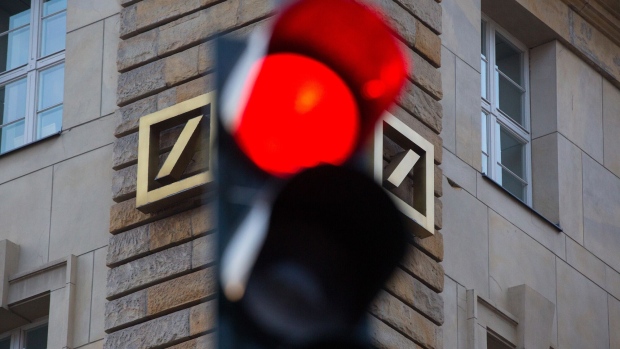Mar 24, 2023
Deutsche Bank Is Victim of Irrational Market, Citi Analyst Says
, Bloomberg News

(Bloomberg) -- Deutsche Bank AG shares plunged the most in three years on Friday, suggesting that a week of soothing words from central bankers and politicians have failed to calm broad worries about the financial sector.
As observers tried to explain the move, analysts at Citigroup Inc. said it may be down to an “irrational market.” While that’s a concern in itself, even more worrying is the risk that negative views spiral out of control and become a self-fulfilling prophecy.
That threat was highlighted this week by Mark Branson, who heads Germany’s bank regulator BaFin. He told Bloomberg that while European banking is safe, one problem area is “contagion via psychology.”
In the search for reasons behind the slump in Deutsche Bank shares, analysts noted the rise in the lender’s credit default swaps, as well as concerns about commercial real-estate exposure and a US Justice Department probe into banks and Russian sanctions.
“Neither appears significant enough to explain the move, rather we view this as an irrational market,” Citi analysts including Andrew Coombs said in a note. As with Credit Suisse, “the risk is if there is a knock-on impact from various media headlines on depositor psychologically, regardless of whether the initial reasoning behind this was correct or not,” they said.
While Deutsche Bank has suffered a string of crises in the past, a massive turnaround plan has helped it move past those. The Citi note added that Deutsche Bank is profitable, and has strong capital and liquidity. At Autonomous, analysts said they have “no concerns about Deutsche’s viability or asset marks.”
Deutsche Bank shares have lost 21% of their value this year — all of it over the last two weeks. This compares with a 7.7% rise on Germany’s DAX index and a steady Euro Stoxx Bank Index.
In recent days, the hedge fund community has increased their bets on falling bank stock prices, according to Ulrich Urbahn, head of multi-asset strategy and research at Berenberg.
“Investors are trying to guess which bank could face next problems — who is, for example, markedly exposed to commercial real estate,” Urbahn said. “The problem is that it could become a self-fulfilling prophecy. The more people think banks have problems, and the more deposits are withdrawn, the greater are the risks are for the banks.”
--With assistance from Steven Arons.
©2023 Bloomberg L.P.






